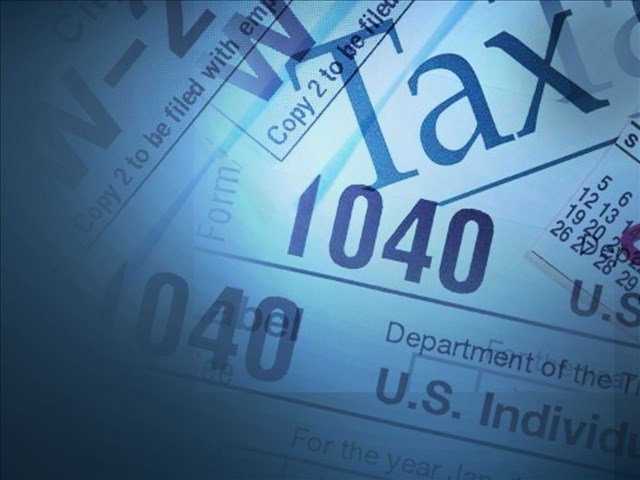Results 1 to 1 of 1
Thread: State tax revenues hit the skids
Thread Information
Users Browsing this Thread
There are currently 1 users browsing this thread. (0 members and 1 guests)
-
09-26-2016, 06:15 PM #1
State tax revenues hit the skids
State tax revenues hit the skids
09/26/16 04:58 PM EDT

State tax revenues declined precipitously in the second quarter of the year as budget analysts warned of a growing trend of revenue decline that could lead to new rounds of budget cuts.
Preliminary figures released by the U.S. Census Bureau show states collected $271 billion in tax revenues between April and June, down nearly $7 billion, or 2.5 percent, from the same quarter a year ago.
The drop was driven by a 3 percent decline in personal income taxes. Corporate income taxes fell 10 percent over the year before.
The second quarter figures represent the largest year-over-year decline in state tax revenues since the end of the recession.
State budget analysts have been warning about falling revenue, which would put new strains on states still struggling to recover from the recession. Most analysts expect revenue to grow less than 2 percent over the next year, a worrying trend as rising costs force legislators to consider budget-cutting measures.
“Because the expenditure side of the budget tends to grow very fast, it certainly doesn’t help states if their tax revenues aren’t growing as fast,” said Dan Seymour, an analyst at Moody’s Investors Service who tracks state budgets.
The new figures are most troubling, experts said, because states rely more on individual tax revenue than on any other source of money. Sales tax revenue, the second-largest source of state income, remained virtually unchanged.
“The primary culprit [responsible for the decline] is personal income taxes, which we think are mainly driven by the stock market performance in calendar year 2015,” Seymour said. “The slowdown in sales taxes indicates there might be a slowdown in income generally.”
Twenty-seven states recorded revenue slides over the second quarter of 2015. States highly dependent on the energy industry were hardest hit as the global commodities market continued to suffer: North Dakota’s tax revenues dropped 32 percent, Alaska’s were down almost 24 percent, and New Mexico saw its revenues slide by 13.5 percent.
Non-energy producing states were not immune to sliding revenues: Maine reported a 15 percent revenue decline, while Illinois’s receipts dropped almost 11 percent.
Twenty states reported increased tax revenues, led by New Hampshire, where revenues jumped almost 14 percent. Nevada, Washington and Kansas all reported growth of more than 8 percent.
The slowdown in state revenue growth began in the middle of 2015, led by weak gains in the stock market and declining oil prices, the nonpartisan Nelson Rockefeller Institute of Government reported.
The S&P 500 Index, a broad measure of the stock market, grew by just 1.4 percent in 2015, far lower than in recent years. That slow growth impacts capital gains taxes, where many states experienced growth in the wake of the recession.
Analysts attributed some of the lost revenue growth to changes made by state legislatures in 2015 that are only now taking effect. Ohio, California, Connecticut, Louisiana and Maine all saw their receipts decline after legislatures either cut tax rates or expanded tax credits. Kansas’s receipts increased after the legislature raised sales taxes.
State budget experts expect revenues to continue slow growth or modest declines in coming years. The Rockefeller Institute reports states expect personal income tax receipts to grow between 3.7 percent and 4 percent over the next two fiscal years, far lower than the 7.7 percent growth rate during the last fiscal year.
Maine, North Carolina and Oklahoma expect personal income taxes to fall, and 17 states forecast slower growth in 2017.

http://thehill.com/policy/finance/29...-hit-the-skids
Similar Threads
-
California state tax revenues running $2.2 Billion above estimates
By JohnDoe2 in forum Other Topics News and IssuesReplies: 0Last Post: 05-08-2014, 11:28 PM -
UPDATE: DESPITE TAX INCREASE, CALIFORNIA STATE REVENUES IN FREEFALL
By Newmexican in forum General DiscussionReplies: 12Last Post: 12-10-2012, 12:49 PM -
Revenues up for state, local governments
By JohnDoe2 in forum Other Topics News and IssuesReplies: 0Last Post: 12-20-2011, 03:39 PM -
State Revenues Long-Term Outlook Still 'Ominous'
By AirborneSapper7 in forum Other Topics News and IssuesReplies: 0Last Post: 02-01-2011, 08:10 PM -
State Tax Revenues Likely Decline Record 6th Straight Quarte
By AirborneSapper7 in forum Other Topics News and IssuesReplies: 0Last Post: 04-17-2010, 06:15 PM


 LinkBack URL
LinkBack URL About LinkBacks
About LinkBacks




 Reply With Quote
Reply With Quote


Flyers Distributed by a Mexican NGO Instruct Illegal Aliens to...
04-16-2024, 09:43 AM in illegal immigration News Stories & Reports